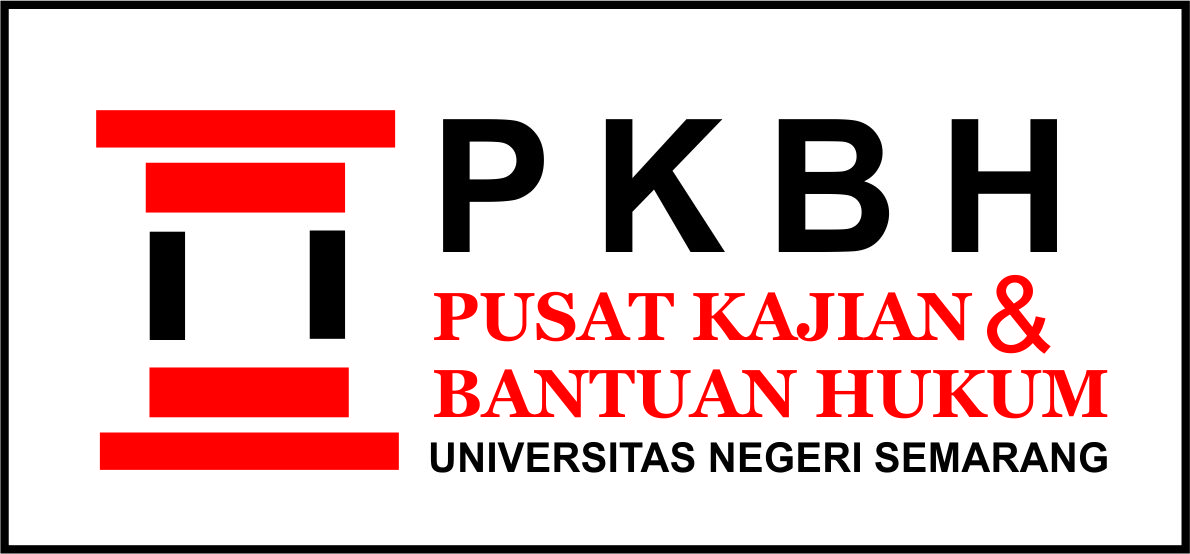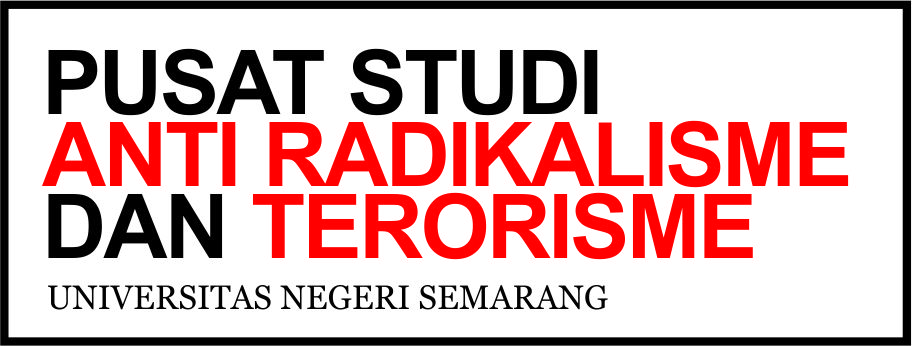Safe Harbor Principle, Exclusion of Criminal Liability for Platform Service Providers
Abstract
In the era of Society 5.0, characterized by the pervasive digitalization of societal functions, platform service providers play a pivotal role. These platforms, however, are frequently exploited by users for unlawful activities. This study investigates the prerequisites for invoking the safe harbor principle, which shields service providers from criminal liability. Employing a qualitative research approach, secondary data was gathered through a comprehensive literature review and subsequently analyzed qualitatively. The safe harbor principle serves as a critical legal mechanism utilized by platform service providers to shield themselves from legal repercussions arising from illicit actions committed by their users. To qualify for this exemption, providers typically must promptly remove unlawful content upon notification and refrain from active involvement in the transmission of such information. However, recent developments indicate that providers may forfeit safe harbor protection if they play a significant role in moderating or curating content on their platforms. This research underscores the essential conditions that platform service providers must meet to avail themselves of the safe harbor principle, highlighting the nuanced balance between facilitating digital innovation and upholding legal accountability. By clarifying these conditions amidst evolving regulatory landscapes, this study contributes to ongoing discussions on legal frameworks governing digital platforms, offering insights crucial for policymakers, legal practitioners, and stakeholders navigating the intersection of technology, law, and societal governance.
Keywords
Full Text:
PDFReferences
Adi Ahdiat. “Pengunjung Shopee Dan Blibli Naik Pada Kuartal II 2023, E-Commerce Lain Turun,” July 7, 2023. https://databoks.katadata.co.id/datapublish/2023/07/07/pengunjung-shopee-dan-blibli-naik-pada-kuartal-ii-2023-e-commerce-lain-turun.
Angela Bolger v Amazon. Com, LLC, 53, Cal.App.5th 431 Court of Appeal, Fourth District, Division 1, California. (n.d.).
Anton Moiseienko. “Understanding Financial Crime Risks in E-Commerce.” London, January 2020. https://doi.org/2397-0286.
Brian Yeh, and Robin Jeweler. “Safe Harbor for Service Providers Under the Digital Millennium Copyright Act.” New York, January 2004. https://www.everycrsreport.com/files/20040109_RL32037_e68c182e7d8954a823b630589327026eb2c4c51a.pdf.
Bryan A. Garner. Black’s Law Dictionary. 11th ed. Toronto: Thomson Reuters, 2019.
Büyüksagis, Erdem. “Extension of Strict Liability to E-Retailers.” Journal of European Tort Law 13, no. 1 (2022). https://doi.org/10.1515/jetl-2022-0003.
Chauriha, Sanhita “Safe Harbor: Bridge To Innovation Amidst The Waters Of Liability?,” Live Law, 2023, https://www.livelaw.in/articles/safe-harbor-bridge-innovation-amidst-waters-liability-240253?infinitescroll=1.
Daguatha, Richard Daguatha. “Use of Digital Platforms to Commit Nefarious Activities Globally. A Critical Literature Review.” Journal of International Relations and Policy 1, no. 1 (2022). https://doi.org/10.47941/jirp.1106.
Deguchi, Atsushi, Chiaki Hirai, Hideyuki Matsuoka, Taku Nakano, Kohei Oshima, Mitsuharu Tai, and Shigeyuki Tani. “What Is Society 5.0?” In Society 5.0: A People-Centric Super-Smart Society, 2020. https://doi.org/10.1007/978-981-15-2989-4_1.
Directive 2000/31/EC of the European Parliament and of the Council of 8 June 2000 on certain legal aspects of information society services, in particular electronic commerce, in the Internal Market ('Directive on electronic commerce’) (n.d.).
Efendi, Jonaedi, and Johny Ibrahim. Metode Penelitian Hukum Normatif Dan Empiris. Edited by Endang Wahyudin. 1st ed. Depok: Prenada Media Group, 2018.
Goldman, Eric. “Dear President Biden: You Should Save, Not Revoke, Section 230.” Bulletin of the Atomic Scientists 77, no. 1 (2021). https://doi.org/10.1080/00963402.2020.1859863.
Hamilton, Rebecca J. “Platform-Enabled Crimes.” SSRN Electronic Journal. Washington, November 12, 2021. https://doi.org/https://dx.doi.org/10.2139/ssrn.3905351.
Hanuz, Bianca. “Direct Copyright Liability As Regulation Of Hosting Platforms For The Copyright-Infringing Content Uploaded By Their Users: Quo Vadis?” Journal of Intellectual Property, Information Technology and E-Commerce Law 11, no. 3 (2020).
L”Oreal SA v eBay International AG (C-324/09) EU:C:2011:474; [2012] Bus LR 1369; [2011] 7 WLUK 313 at [144]. (n.d.).
MacLean, Ken. “Interactive Digital Platforms, Human Rights Fact Production, and the International Criminal Court.” Journal of Human Rights Practice 15, no. 1 (2023). https://doi.org/10.1093/jhuman/huac062.
Madiega, Tambiama. “Reform of the EU Liability Regime for Online Intermediaries.” EPRS | European Parliamentary Research Service, 2020. https://doi.org/DOI:10.2861/08522.
Mahfud, Mahfud. “An Overview of Strict Liability Offences and Civil Penalties in the UK’s Environmental Law.” Jurnal Hukum Dan Peradilan 9, no. 1 (2020). https://doi.org/10.25216/jhp.9.1.2020.154-169.
Michael D. Smith, and Marshall Van Alstyne. “Government Policy And Regulation: It’s Time to Update Section 230.” Harvard Business Review, August 12, 2021. https://hbr.org/2021/08/its-time-to-update-section-230.
Narvaez Rojas, Carolina, Gustavo Adolfo Alomia Peñafiel, Diego Fernando Loaiza Buitrago, and Carlos Andrés Tavera Romero. “Society 5.0: A Japanese Concept for a Superintelligent Society.” Sustainability (Switzerland) 13, no. 12 (2021): 1–12. https://doi.org/10.3390/su13126567.
Nicola, Andrea Di. “Towards Digital Organized Crime and Digital Sociology of Organized Crime.” Trends in Organized Crime, March 30, 2022. https://doi.org/https://doi.org/10.1007/s12117-022-09457-y.
Nuradi, N., and Edi Rohaedi. “Implementation of Strict Liability Principle in Civil Law Enforcement in Environment Law Files as Consequence of Forest and Land Fire in Indonesia Justice Practice.” International Journal of Multicultural and Multireligious Understanding 7, no. 5 (2020). https://doi.org/http://dx.doi.org/10.18415/ijmmu.v7i5.1703.
Ojala, Arto, Natasha Evers, and Alex Rialp. “Extending the International New Venture Phenomenon to Digital Platform Providers: A Longitudinal Case Study.” Journal of World Business 53, no. 5 (2018). https://doi.org/10.1016/j.jwb.2018.05.001.
Ramadhanty, Syarafina, Naila Amatullah, Niki Anane Setyadani, and Tasya Safiranita Ramli. “Doktrin Safe Harbor: Upaya Perlindungan Hak Cipta Konten Dalam Platform User Generated Content.” Legalitas: Jurnal Hukum 12, no. 2 (2020). https://doi.org/10.33087/legalitas.v12i2.226.
Raphaël Gellert, and Pieter Wolters. “The Revision of the European Framework for the Liability and Responsibilities of Hosting Service Providers: Towards a Better Limitation of the Dissemination of Illegal Content.” Nijmegen, April 7, 2021.
Smit, Lise, Claire Bright, and Stuart Neely. “Muddying the Waters: The Concept of a ‘Safe Harbour’ in Understanding Human Rights Due Diligence.” Business and Human Rights Journal 8, no. 1 (2023). https://doi.org/10.1017/bhj.2022.40.
Sodikin, Sodikin. “Perkembangan Konsep Strict Liability Sebagai Pertanggungjawaban Perdata Dalam Sengketa Lingkungan Di Era Globalisasi.” Al-Qisth Law Review 5, no. 2 (2022). https://doi.org/10.24853/al-qisth.5.2.261-298.
Sugiono, Shiddiq. “Industri Konten Digital Dalam Perspektif Society 5.0.” Jurnal Ilmu Pengetahuan Dan Teknologi Komunikasi 22, no. 2 (2020). https://doi.org/https://doi.org/10.17933/iptekkom.22.2.2020.175-191.
Unnikrishnan A. “Safe Harbours in Insolvency Proceedings.” In Insolvency and Bankruptcy- A Miscellany of Perspectives. New Delhi: Insolvency and Bankruptcy Board of India, 2019.
Viacom International, Inc. v. Youtube, Inc. 676 F.3d 19 United States Court of Appeals, Second Circuit. Decided: April 5, 2012 (n.d.).
Weeks, Bruce. “Safe Harbor and Copyright Infringement on the Internet: A Need to Update the Paradigm” 5, no. 2 (n.d.): 33–54. www.rsu.ac.th/rjsh.
Wilman, Folkert. “The EU’s System of Knowledge-Based Liability for Hosting Service Providers in Respect of Illegal User Content – between the e-Commerce Directive and the Digital Services Act.” Journal of Intellectual Property, Information Technology and E-Commerce Law 12, no. 3 (2021).
Wirtz, Jochen, Kevin Kam Fung So, Makarand Amrish Mody, Stephanie Q. Liu, and Hae Eun Helen Chun. “Platforms in the Peer-to-Peer Sharing Economy.” Journal of Service Management 30, no. 4 (2019). https://doi.org/10.1108/JOSM-11-2018-0369.
Yasmina Fayza, Muhamad Amirulloh, and Mustofa Haffas. “Penjualan Sertifikat Vaksin Covid-19 Oleh Pengguna Facebook Berdasarkan Peraturan Perundang-Undangan Terkait.” Jurnal Poros Hukum Padjadjaran 4, no. 1 (November 2022).
Refbacks
- There are currently no refbacks.










